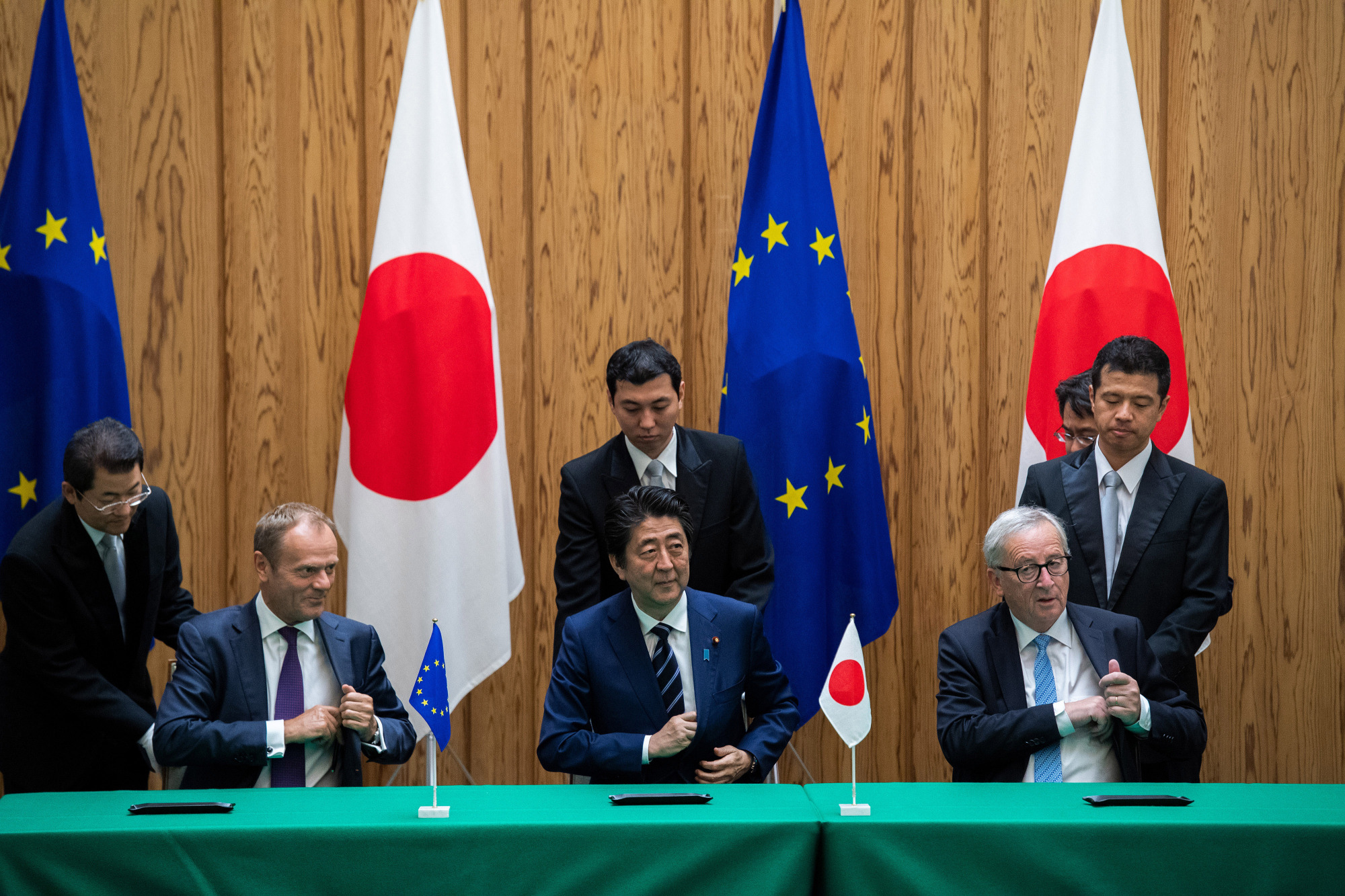If a random American were to be asked "Which countries are at the forefront of globalization?" or "Which countries are the guardians of the liberal order?," it seems unlikely that Japan would be among the countries they named. The Land of the Rising Sun is typically thought of as a closed-off country, with little immigration, a protectionist trade policy and inward-focused companies that ignore global consumers. Yet as the U.S. retreats from the world stage to focus on its own political divisions and rightist populism surges in Europe, Japan is taking the high road. Call it globalism Japan style.
On trade, Japan just closed a deal with the European Union to eliminate almost all tariffs between them. It's the biggest commercial agreement in EU history. Meanwhile, Japan has completed domestic procedures for the launch of a version of the Trans-Pacific Partnership — from which the U.S. withdrew under President Donald Trump — and is trying to negotiate another huge trade agreement with China, India, South Korea and other nations. Together, those trade deals would mean that about 80 percent of Japan's trade would be covered by free trade agreements.
On immigration, too, Japan is assuming a decidedly more globalist stance. Though it doesn't take nearly as many immigrants as countries like Canada, the number is growing. The government has implemented a fast track for skilled immigrants to apply for permanent residency after only one year in the country, while another new rule will greatly expand the number of guest workers allowed. Ethnic Chinese and Indian neighborhoods are already forming in Tokyo.



















With your current subscription plan you can comment on stories. However, before writing your first comment, please create a display name in the Profile section of your subscriber account page.